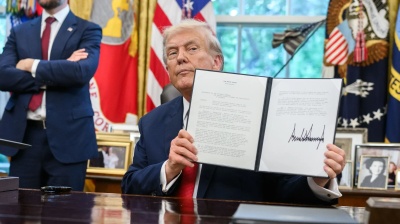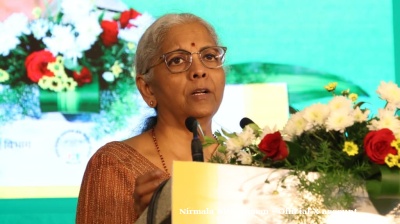The European Union told Poland on October 14 that its international legal obligations guaranteeing the right of asylum cannot be suspended to stop Russia and Belarus trying to sow chaos by pushing migrants over the border.
The EU thus responded to a surprise announcement by Polish Prime Minister Donald Tusk, made on October 12, that Poland will “temporarily suspend” the right to asylum to curb irregular migration orchestrated by Moscow and Minsk.
The EU member states “have international and EU obligations, including the obligation to provide access to the asylum procedure”, a European Commission spokesperson told Politico.
“We need to work towards a European solution — one that holds strong against the hybrid attacks from Putin and Lukashenko, without compromising on our values,” the spokesperson also said.
The comments appear an early setback for Tusk, who said he would seek recognition for this decision from the European Union, where immigration is a key political issue. Still, the details of what the Polish PM called a new migration strategy are expected on October 15.
Unfazed, Tusk said on his social media that “our right and our duty is to protect the Polish and European border. Its security will not be subject to negotiation. With anyone.”
Earlier, the PM said that Belarus and Russia “exploit the right asylum contrary to its true purpose” in a way that has “nothing to do with human rights".
In recent years, tens of thousands of migrants, mostly from the Middle East and Africa, have tried to enter Poland via Belarus, with 2,500 attempting crossings last month and over 26,000 so far this year.
Poland has responded by bolstering its border infrastructure and establishing a buffer zone with restricted entry along part of its border with Belarus.
In September, Michael O’Flaherty, the Council of Europe’s Commissioner for Human Rights, warned of Belarus' destabilising actions, while also criticising Poland’s illegal policy of pushing back migrants without assessing asylum claims.
Tusk's announcement sparked renewed criticism from human rights NGOs and from the inside of the government he leads.
Human rights organisations argue that the right to seek asylum, enshrined in the Polish Constitution, is a fundamental human right that cannot be suspended. International asylum laws, including the Geneva Convention, also bind Poland.
Szymon Holownia, the Speaker of the Polish parliament and a leader of Polska 2050, one of the parties making up the ruling coalition, said that Tusk’s declaration was not a position of the coalition but one of its parties only.
“I consistently hold … the position that security is paramount, but security does not exclude humanity,” Holownia said on his social media.
Domestic politics likely dictated Tusk’s stance on migration.
Poland is eight months away from a presidential election, which will see a change in leadership as President Andrzej Duda steps down after completing his second and final term.
The election is crucial for Tusk’s government, as the coalition lacks the votes to override a presidential veto. Duda, an ally of the opposition Law and Justice (PiS) party, has frequently used his veto powers to block legislation. He has also referred laws to the Constitutional Tribunal for review, a court Tusk’s coalition considers illegitimate but cannot stop Duda from using.
A victory by a Tusk-aligned presidential candidate would remove a major obstacle to his government’s agenda. However, another PiS president could derail the coalition, which is already divided on several issues.
With Poland’s political landscape, a runoff vote in the presidential election is almost certain. The coalition’s candidate will likely face a PiS contender and will need at least some support from the far-right electorate to win.
The far-right Konfederacja party has long opposed immigration, pushing both PiS and the Civic Coalition further to the right for fear of losing votes.
News

Trump authorises CIA covert operations in Venezuela to topple Maduro
The White House has acknowledged granting the Central Intelligence Agency sweeping powers to conduct covert operations aimed at unseating President Nicolás Maduro, the NYT reported.

India’s finance minister to miss upcoming IMF and World Bank meetings
India’s Finance Minister Nirmala Sitharaman will not attend this week’s annual meetings of the International Monetary Fund and World Bank in Washington, as trade negotiations between New Delhi and Washington remain unresolved.

Young Ukrainians asylum seekers fleeing the war for Germany surges
The number of young Ukrainian fleeing the war and seeking asylum in Germany has surged, following Ukraine’s decision to partially lift its travel ban for men aged 18 to 22, according to figures from the German Interior Ministry.

US may double support for Argentina to $40bn conditional on policy reforms
Washington buys Argentine pesos and mulls creating a new private sector-led $20bn debt facility, which would bring total support to $40bn with the existing swap line, Treasury Secretary Bessent said.



